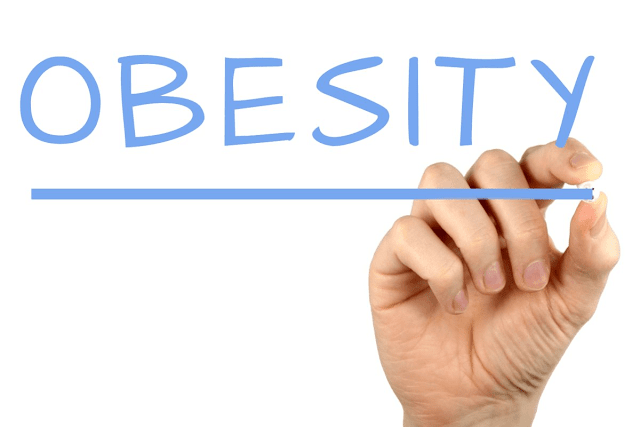Nowadays you are no longer simply fat or obese; you suffer from obesity. And obesity is also an epidemic. That sounds like it is a scary disease, and so do institutions like the Health Council and the recently published Care Standard Obesity. Do we need to get started quickly to cure a tsunami for fat people? According to some medical scientists, we should not exaggerate. For the time being, there is no reason to panic.
Is obesity really a chronic disease?
Doctors actually do not know for sure whether obesity is a disease. The uncertainty and discussion about this are so complicated that in 2008 a lot of scientists came together to settle the issue once and for all. They did not come out. Worse, they came to the conclusion that no one actually had a good idea of what a disease is, but that is a different story.
In the article that they had written after that meeting, we find arguments for why obesity would be a disease. Obesity has clear, characteristic symptoms that other diseases do not have. And the most important is fat filled stuff, for example writing Antonio Rene and Baqiyyah Conway in the journal Obesity Reviews. Excess fat in your cells makes your body naturally larger, so your lungs and heart have to do more work than in people who do not have the fatness disease. Plus, if you really have a lot of adipose tissue in your body, it also disrupts your metabolism.
In that sense, doctors write, obesity is a malformation of the adipose tissue. And a deformed or disordered part of the body that causes damage can simply be called a disease - for example, cancer is also a deformed group of body cells that causes problems.
But not everyone thinks about it. Doctor-scientist David Allison totally agrees that large fat cells can be unhealthy - or, as in the case of a tumor, 'malicious' - but that you can not speak of a disease for a long time. In the journal International Journal of Obesity, Allison explained in 2001 that the filled fat cells mainly increase the risk of certain known diseases, but do not show unique symptoms.
Because even if you carry an increased concentration of adipose tissue, it is not yet undeniable that you get other diseases such as diabetes - although the chance of it certainly increases and with top-heavy people even that all risks are so great, they are almost guaranteed to be one of the fatness diseases increase. But, says Allison: it is no different than a risk factor. In this way, obesity is comparable to smoking: you increase the risk of certain diseases, but whether you get these diseases depends on your predisposition, your behavior, and the rest of your overall health.
In addition, Allison finds the way in which obesity is determined but a vague hassle. It is even a circular argument. Because you have obesity when you carry too much excess fat in your body. But was superfluous fat precisely the symptom or definition of the disease? Allisons point is that these two intertwine, making the determination of obesity a so-called self-fulfilling prophecy, a prediction that reveals itself. Just look: if excess fat is equal to obesity, the diagnosis 'You are obese because you have excess fat' is easy to write to 'You are obese because you are obese.' That sounds like "It's just that way. Point out. ", But nobody cares.
In short, the claim that obesity is a disease is, to put it mildly, not firmly established in science: it does not hold much. Nevertheless, all major health authorities in the Netherlands such as the Health Council and the Healthcare Standard Obesity say with reasonable certainty that obesity is a disease. Why should these institutions, in view of all this scientific uncertainty, so firmly do so?
The Need
Do you remember the scientific panel that came together in 2008 to decide whether obesity was a disease and did not work out? After their discussion stalled, they decided to talk about it - they were together now. And so they asked the following question: okay, maybe we do not know for sure if obesity is a disease, but are there good reasons to just say that it is?
Those reasons are there, the scientists decided, and they are above all political. The stamp 'illness', as the doctors write, in fact, can help to turn words into action.
For example, if an obesity scientist needs research money and labels obesity as a disease, he or she probably catches more. Health insurers may be quicker to pay for treatments and diets if obesity is a disease that you can not do anything about, instead of a body condition that a patient could have kept an eye on yourself. Doctors who do not dare to burn their hands to fat people - mostly because most treatment plans offer little certainty and it is not always easy to say to people that they are too fat - might be more positive about treatment if they hear more often that obesity a disease is with measurable symptoms.
But the authors also recognize problems with such a stamp: it sounds panicky. And nothing is better at the fear of diseases than the pharmaceutical industry. If obesity is a disease, there is a pill for it; even though it does not work well. Scientists who often say that obesity is a disease, therefore raise suspicion among the public: does it work for the pharmaceutical industry? And that, in turn, creates a more general mistrust of scientists. Also not convenient.
Obesity Is A Disease
Related Post
Subscribe to:
Post Comments (Atom)






0 comments